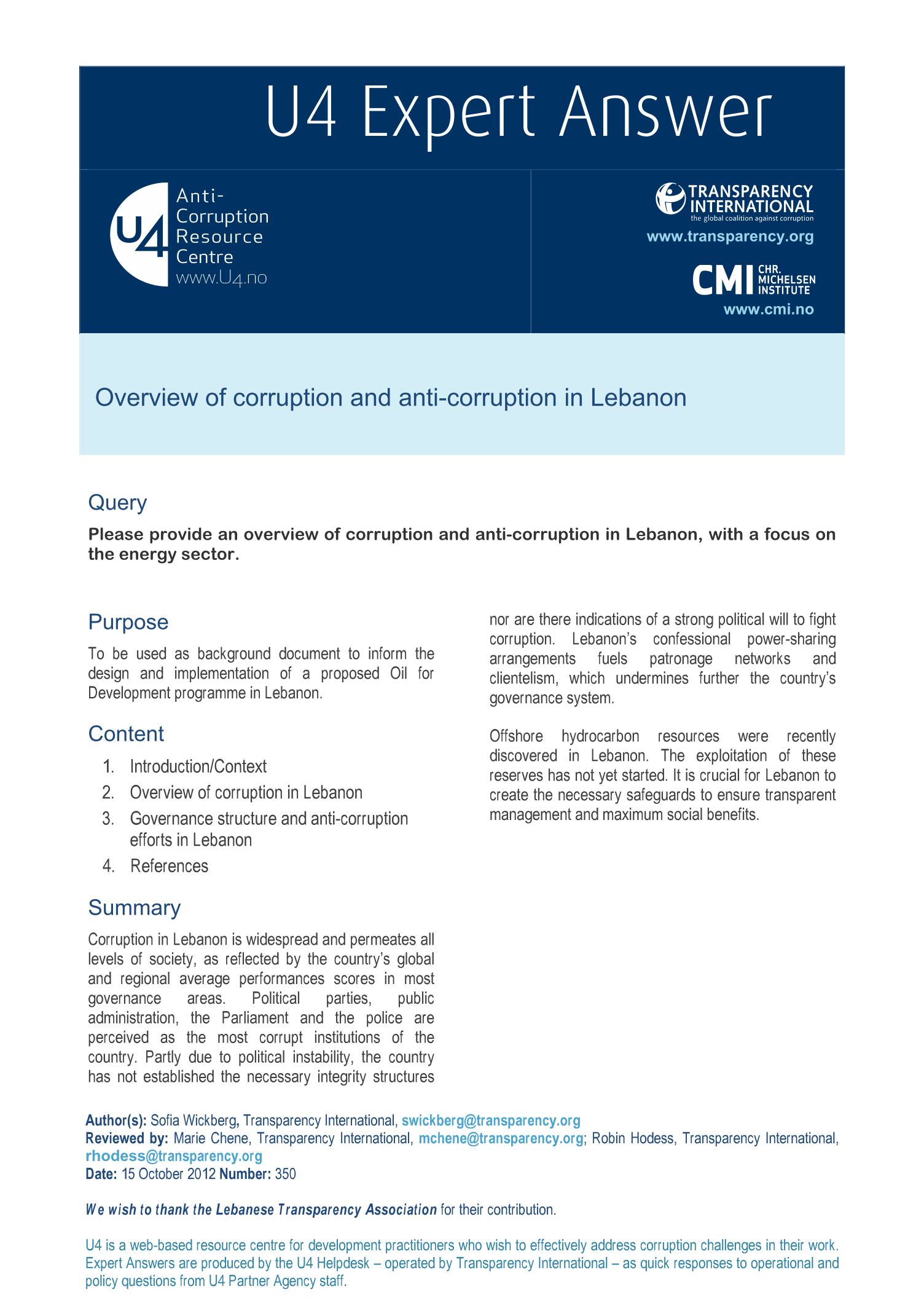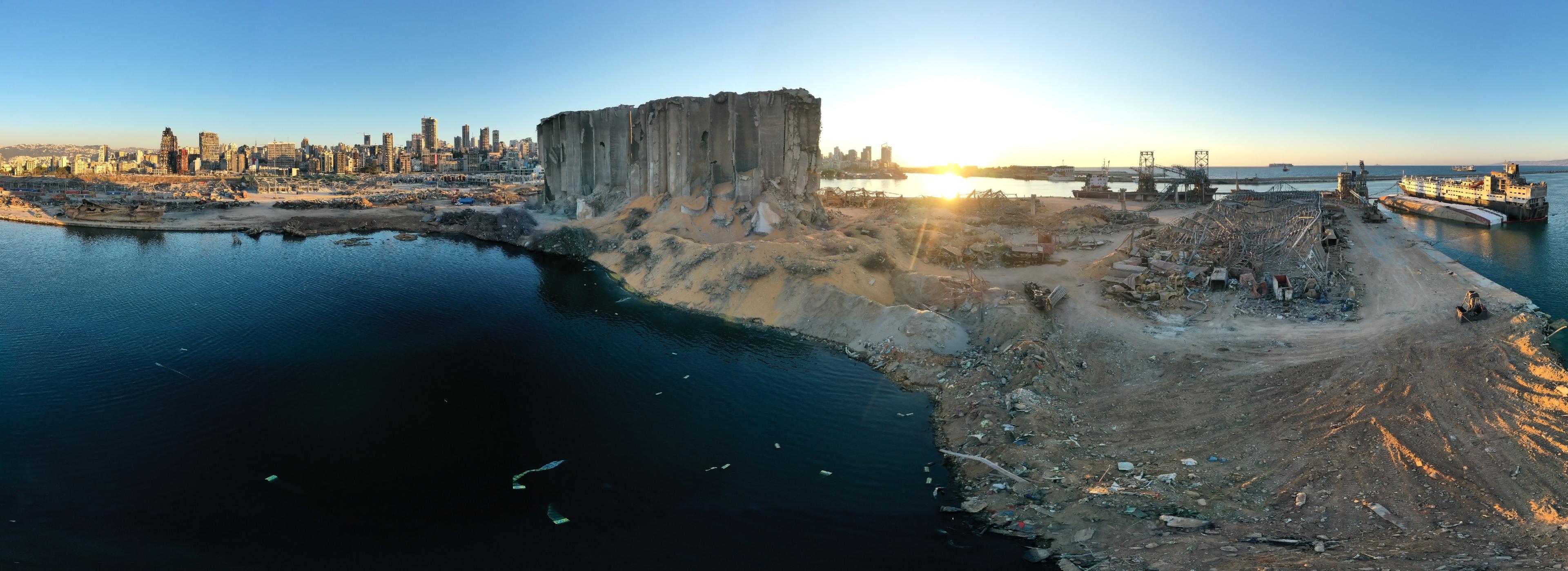U4 Helpdesk Answer
Overview of corruption and anti-corruption in Lebanon
Corruption in Lebanon is widespread and permeates all levels of society, as reflected by the country’s global and regional average performances scores in most governance areas. Political parties, public administration, the Parliament and the police are perceived as the most corrupt institutions of the country. Partly due to political instability, the country has not established the necessary integrity structures nor are there indications of a strong political will to fight corruption. Lebanon’s confessional power-sharing arrangements fuels patronage networks and clientelism, which undermines further the country’s governance system.

Cite this publication
Wickberg, S. 2012. Overview of corruption and anti-corruption in Lebanon. Expert Answer 350
Disclaimer
All views in this text are the author(s)’, and may differ from the U4 partner agencies’ policies.
This work is licenced under a Creative Commons Attribution-NonCommercial-NoDerivatives 4.0 International licence (CC BY-NC-ND 4.0)


